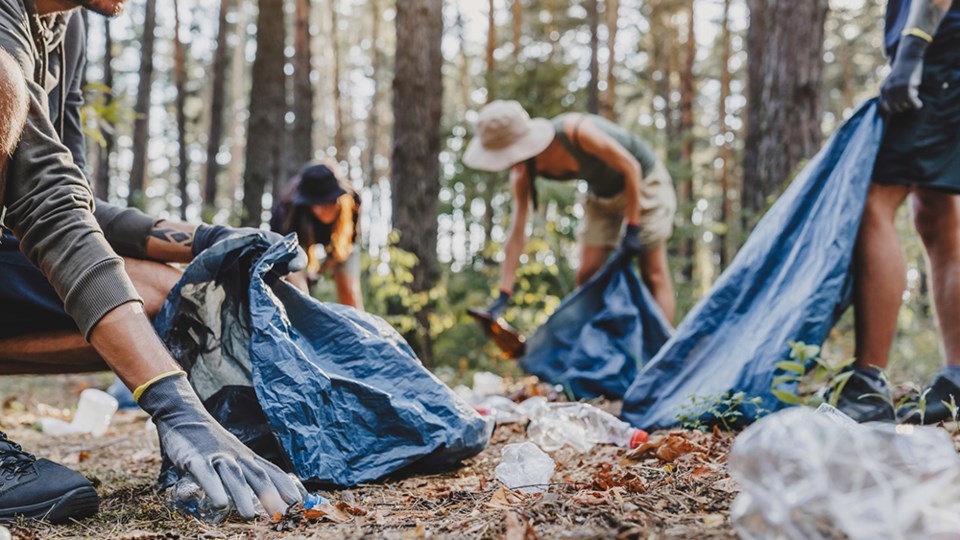Encountering a dumpsite along a trail in the woods or takeout food litter at our favourite lakefront can find us shaking our heads self-righteously. Although it’s true these sightings reflect a person with a deep disconnect from their action’s impact, there is inevitably a lot more percolating under the surface.
Why do we litter and how do we become an active part of shifting this habit in our communities?
While litterbugs of all shapes and sizes are easy to malign, it is likely we have all found ourselves being careless around waste at some point. Whether it’s tossing dirty containers in the garbage rather than rinsing and recycling them, or dumping seemingly innocent grass clippings in the forest, both reflect some of the same psychology at play with the illegal dumper.
As with all situations in life, it is problematic to create an “us” and “them” perspective, which usually only serves to divide. Also, where there is judgment felt, there is little chance to have a dialogue with anyone in the bad habit of disrespecting earth.
It wasn’t so long ago that nearly everything we bought in a store or fashioned ourselves was made from natural materials. When plastic became mainstream in the 1970s, it revolutionized our waste stream, suddenly flooding the marketplace with packaging and products that wouldn’t break down for decades, and often for hundreds of years. Before plastic, much of what people discarded in nature would have decomposed quickly, leaving no trace.
In a sense, nature is littering all the time – leaves, branches, excrement and carcasses make up its debris – all readily composted back into the nutrient cycle for plants and animals.
In our race to create comfort, ease and entertainment, alongside useful technological tools and instruments with plastic and various toxic chemicals, we have ended up with a glut of garbage that requires special management to re-enter the “nutrient” cycle. Recycling and composting programs have been designed to do just that. They are not, however, able to erase the millennia that humanity didn’t need such complex systems.
That said, toxic and non-degradable waste in particular are realities in our present day. Many efforts are being made to clean up identified sites by the daily dog walker, organized groups, and municipal employees.
In qathet Regional District (qRD), there have been incredible efforts to clean coastlines, including 56.92 tonnes in 2021. Beyond this, there are other regionally sponsored opportunities for residents to get involved in cleanups.
With the annual Trash Bash once again postponed in 2021, there is currently a voucher-based system where fees are waived for disposal of collected illegally dumped trash. This, of course, excludes household trash, and also requires an application to qRD beforehand by contacting Let’s Talk Trash.
Powell River U18A Kings hockey team is playing a role in helping the community clean up its act this month. Members will be collecting trash on October 30 as a fundraiser. Since the 2013/2014 season, they have collected a total of 17.57 tonnes of garbage in their annual Garbage-a-thon. Anyone wishing to support this fundraiser can visit the Powell River Scotiabank branch up to and including October 30.
Holding a compassionate perspective for why people might be doing something we disagree with, which allows self-reflection for the ways we are the same and taking action where we see a need, is a great way to lead positive change by example.
Let’s Talk Trash is qathet Regional District’s waste-reduction education program. For more information, email [email protected] or go to LetsTalkTrash.ca.




